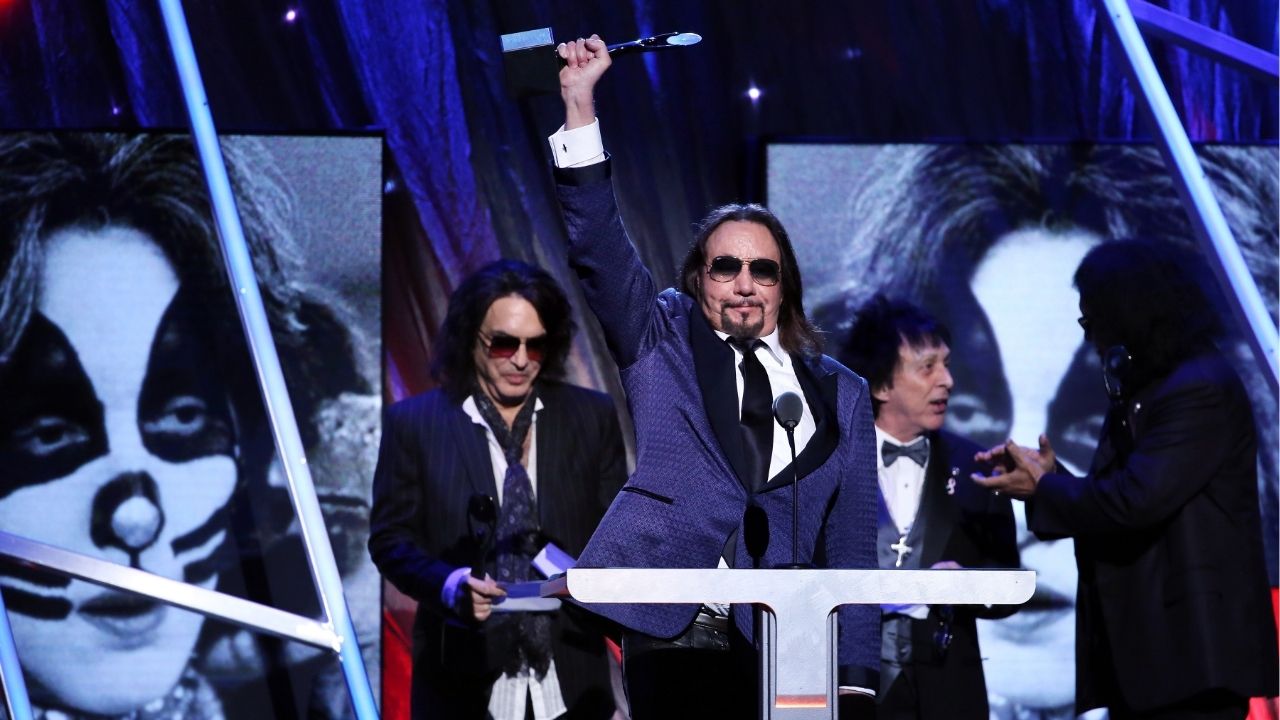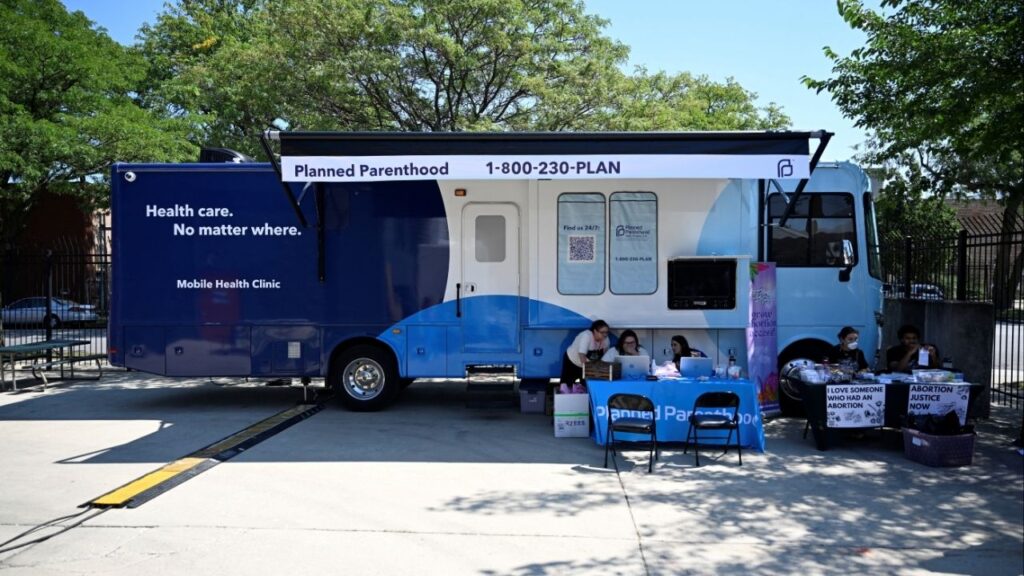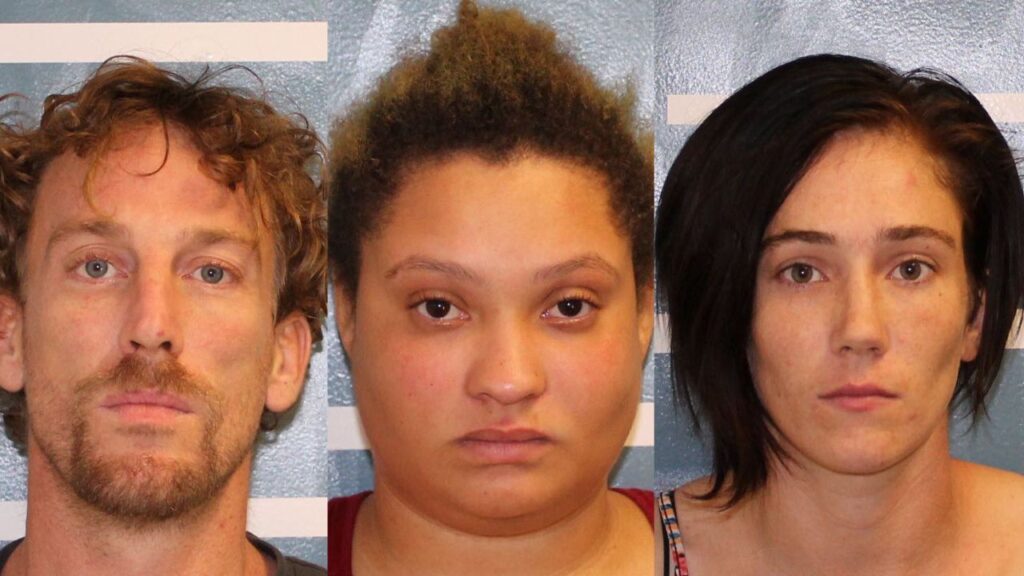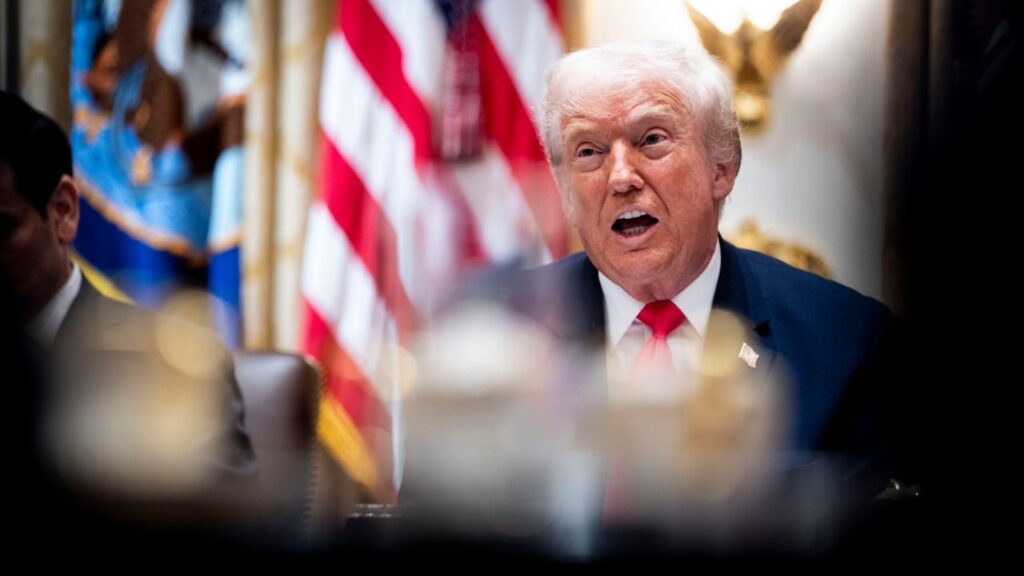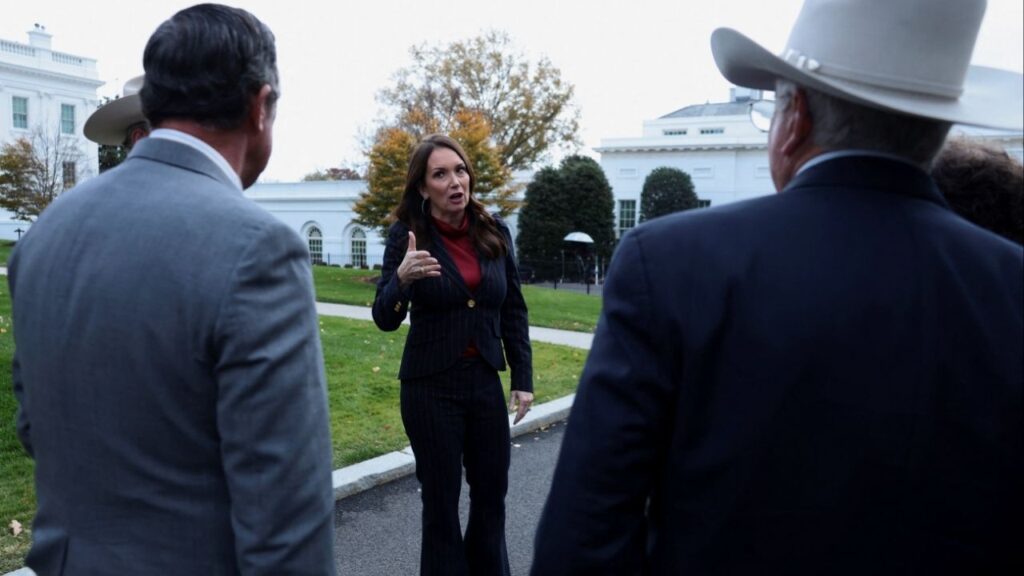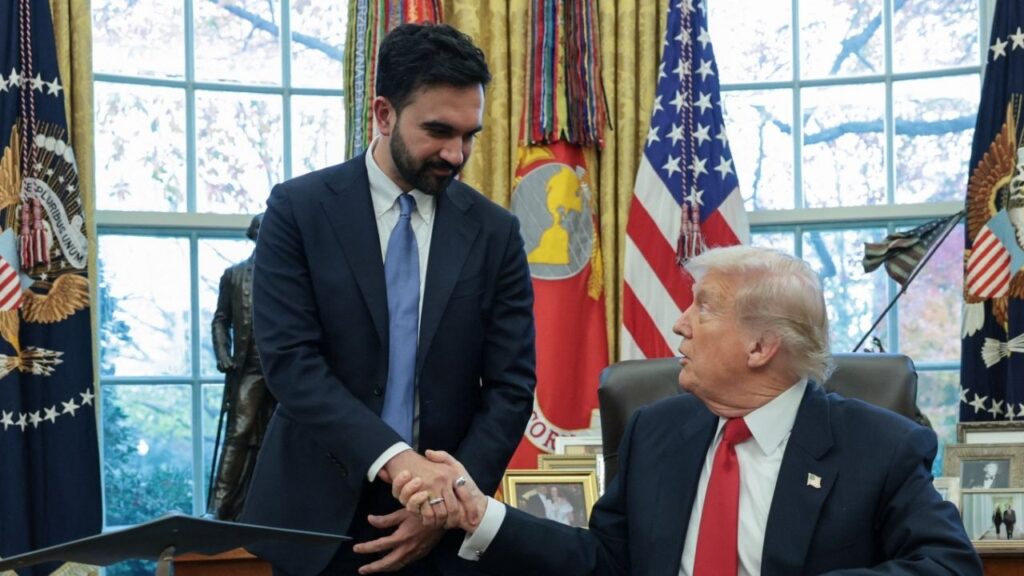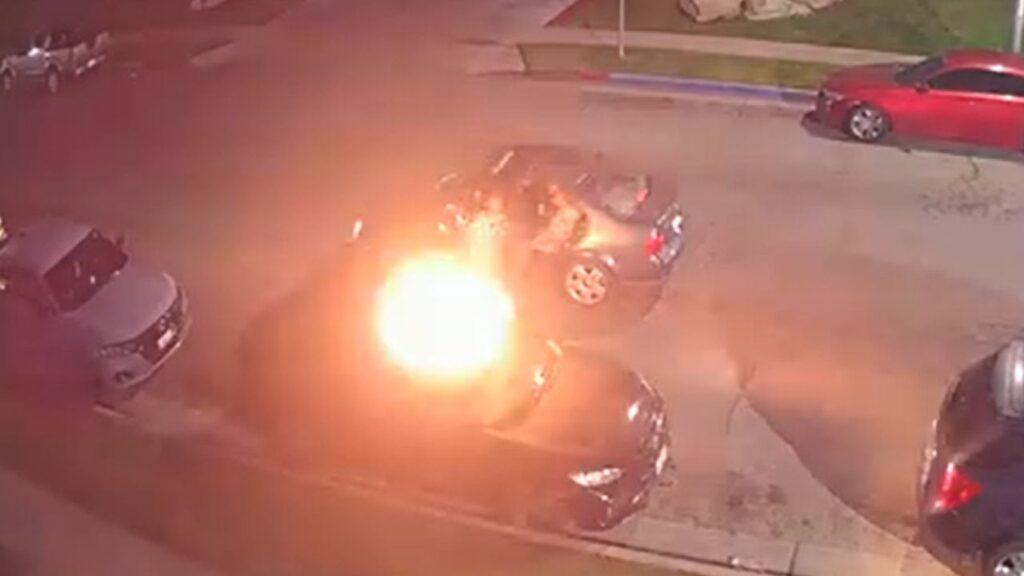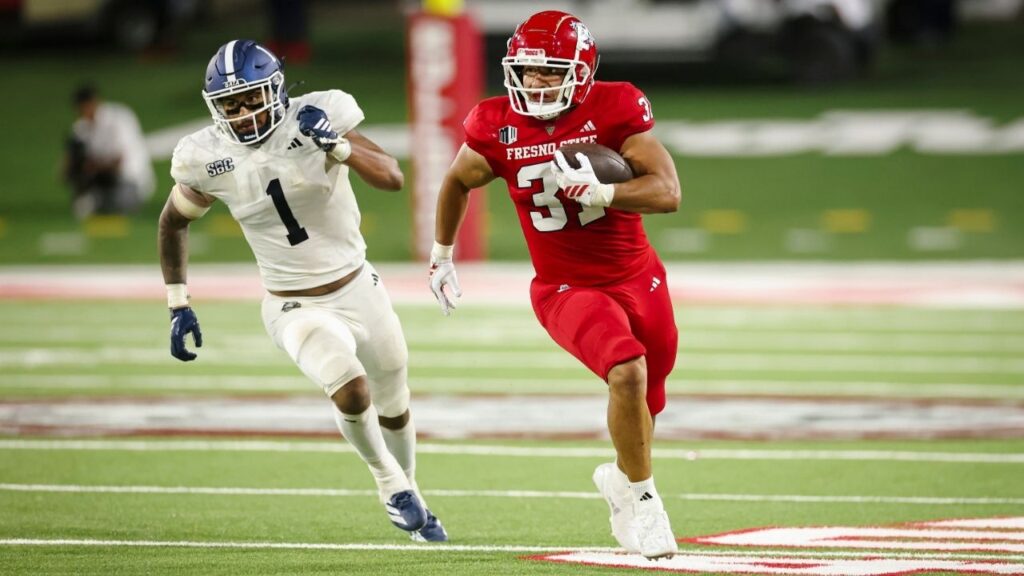Ace Frehley, center, accepts an award with his Kiss bandmates during the 29th annual Rock & Roll Hall of Fame Induction Ceremony in New York, April 10, 2014. Frehley, the original lead guitarist of the band Kiss, who often performed in white-and-silver face makeup and sold millions of records during his two tenures with the band — from 1973 to 1982, and then from 1996 to 2002 — died on Thursday, Oct. 16, 2025, in Morristown, N.J. He was 74. (Richard Perry/The New York Times)
Share
|
Getting your Trinity Audio player ready...
|
Ace Frehley, the original lead guitarist of the hard-rock band Kiss, who often performed in white-and-silver face makeup and sold millions of records during his two tenures with the band — from 1973 to 1982, and then from 1996 to 2002 — died Thursday in Morristown, New Jersey. He was 74.
A statement from his family said the cause was a recent fall at his home but did not specify where in Morristown he died.
A consummate showman, like all the members of Kiss, Frehley was known for playing guitars rigged with pyrotechnic effects and for his distinctive stage persona: He was known as “the Spaceman” or “Space Ace” because of the silver stars on his face. He also designed the band’s logo, with its lightning-bolt letters.
The other founding members of Kiss were guitarist Paul Stanley, drummer Peter Criss and bassist Gene Simmons (who was hospitalized this month after a car crash in Malibu, California.) All four are slated to receive Kennedy Center Honors in December.
Many rock fans initially dismissed Kiss as gimmicky charlatans — the band members weren’t photographed without their stage makeup until 1983 — but its energetic and theatrical live shows built a following of devoted teenagers, known as the Kiss Army. The band placed eight singles in the Top 40 during Frehley’s tenure; he played on seven of them, including “Love Gun,” “Christine Sixteen” and “I Was Made for Loving You.” (He was absent from the band’s biggest chart hit, “Beth,” a ballad with orchestral backing that reached No. 7 on the Billboard chart in 1976.)
During Frehley’s time with Kiss, the band released 11 albums, both studio and live, that went gold or platinum in the United States. (Kiss ultimately sold over 100 million albums.) With the passage of time and the enduring popularity of its party anthem “Rock and Roll All Nite,” the band saw its critical reputation improve; Kiss was inducted into the Rock & Roll Hall of Fame in 2014.
Guitarist Tom Morello of Rage Against the Machine inducted the band, passionately making the case for Kiss’ influence on everyone from Metallica to Lady Gaga. Frehley, he said, “blazed unforgettable, timeless licks across their greatest records.”
Frehley himself bragged in a 2024 interview with the website Antihero that “out of the four founding members of Kiss, I definitely have been the most successful solo artist.” That was true largely because of his single “New York Groove,” a Top 20 hit with a stomping beat that is now played at Citi Field after every Mets victory. “New York Groove” was the most successful single from a typically excessive Kiss stunt: In 1978, the four members all released solo albums simultaneously.
Paul Daniel Frehley was born in the New York City borough of the Bronx on April 27, 1951, the youngest of three children of Carl Frehley, an electrical engineer, and Esther (Hecht) Frehley.
Inspired by the Beatles and the Rolling Stones, Paul began playing guitar at age 13; his parents gave him his first electric guitar as a Christmas present, hoping (unsuccessfully) that it would keep him out of trouble. He was given the nickname Ace when he was 16 by the drummer in one of his early bands, who admired Frehley’s ability to set him up with attractive dates.
In 1972, when he was 21 and still living at home, he spotted an ad in The Village Voice that read, “Lead guitarist wanted with flash and ability.” Reasoning that he fit the description, he auditioned for the band that would become known as Kiss. (His mother drove him to the audition.) When he got the gig, Frehley started using the name Ace full time to avoid confusion with Stanley.
Although Stanley and Simmons were the primary songwriters in Kiss, Frehley contributed some songs to the group’s repertoire, starting with “Cold Gin” on their debut album, which was released in 1974 and called simply “Kiss.” Uncertain about his own singing, he didn’t sing lead vocals until “Love Gun” (1977), the band’s sixth album, on which he sang his composition “Shock Me.”
He was the band’s most enthusiastic user of drugs and alcohol; Simmons, in contrast, was a lifelong teetotaler. In the 2003 book “Kiss: Behind the Mask,” an authorized biography by David Leaf and Ken Sharp, Stanley was quoted as saying that at times, “I don’t know if Ace knew the back side of his guitar to the front and it was probably due to ingesting certain liquids.”
Simmons added, “Ace’s judgments have been clouded since the beginning, and that’s being kind.”
In his 2011 memoir, “No Regrets” (written with Joe Layden and John Ostrosky), Frehley said that he became alienated from the band because of its increasing commercialism: “There were Kiss lunchboxes, Kiss action figures, Kiss makeup kits, Kiss dolls. You name it, we sold it.” He allowed that he did enjoy the money the group brought in — $100 million per year in the late 1970s, according to Frehley.
Criss left the band in 1980, and Frehley followed in 1982; Kiss continued with an array of replacements. Frehley pursued a solo career, releasing seven more albums under his own name and two with a group he called Frehley’s Comet.
He and Criss rejoined Kiss in 1996 for a lucrative series of reunion tours. Frehley’s last show with the band was in Salt Lake City, at the closing ceremony for the 2002 Winter Olympics.
Frehley claimed that his abuse of drugs and alcohol was exacerbated by Simmons and Stanley’s minimizing of his contributions to Kiss. On a 2024 episode of the podcast “Guitar Tales with Dave Cohen,” he said that he got sober in 2006 after “10 car accidents.”
He started dating Jeanette Trerotola when he was 18; they married in 1978 and legally separated seven years later but remained married. She survives him, as do their daughter, Monique; his brother, Charles; and his sister, Nancy Salvner.
Frehley valued both his ability and his flash. Speaking with Fuzz magazine in 1997, he suggested that if there were two guitarists of equal ability, one of whom leaps around onstage and the other of whom doesn’t, “Nine times out of 10 to an untrained ear in the audience, they’ll probably say that the guitar player who jumps around and stuff is the better musician.” He acted on that belief throughout his career: “To me,” he said, “image was very important.”
—
This article originally appeared in The New York Times.
By Gavin Edwards/Richard Perry
c. 2025 The New York Times Company
RELATED TOPICS:
Categories
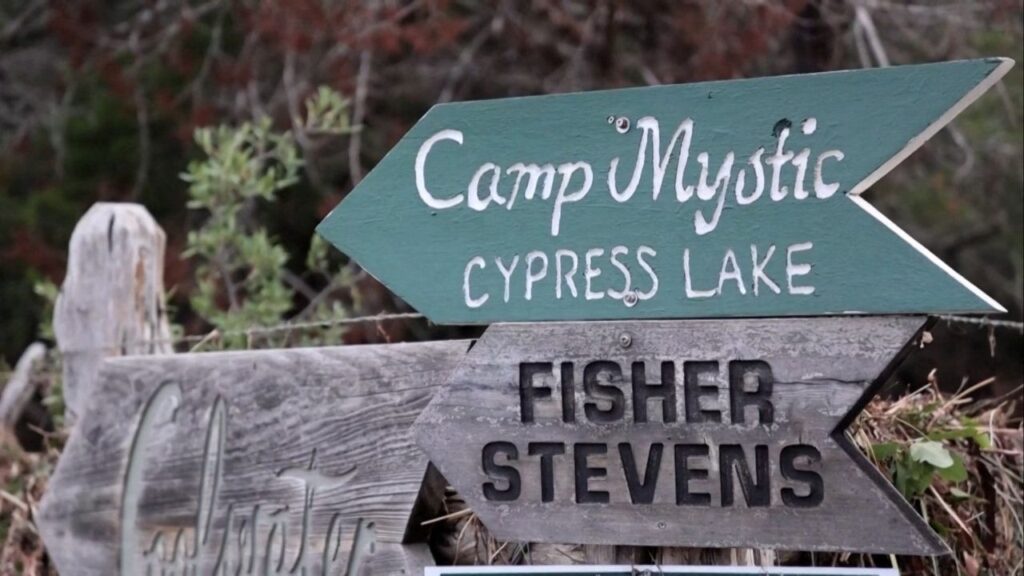
Texas Camp To Reopen After Flood That Killed 27 Children



